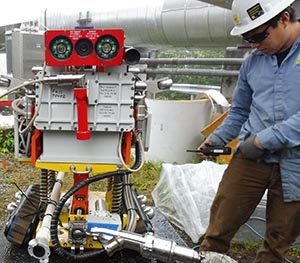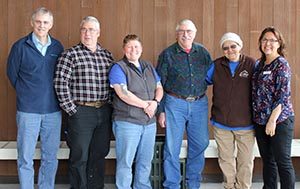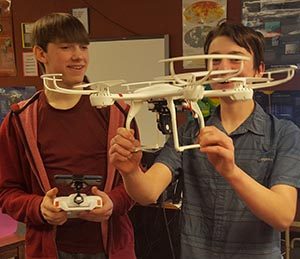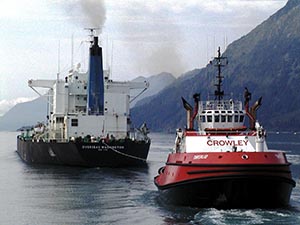Submitted by Alyeska Corporate Communications.

This summer, Alyeska’s multi-year internal inspection program of Valdez Marine Terminal piping included inspecting buried relief system and crude oil piping in and around the East Metering building, and from West Metering to the end of Berth 5. Much of this piping is encased in concrete and was considered “uninspectable” until recent advances in inspection technology.
Crews started in the spring, working in and around the East Metering building where oil enters the Terminal and is measured as part of the pipeline leak detection system. They built containment and installed equipment to allow for system isolation. The roof was modified so cranes could remove large segments of pipe from the building and return them after the inspection.
During a scheduled maintenance shutdown in June, TAPS personnel drained down and isolated the impacted piping around East Metering. Once the shutdown was completed, a contractor cleaned the pipe with special equipment that limited physical entry into the pipe. Crews removed several 90-degree pipe segments to create access points for the crawler pig (see photos) that carries the inspection tool through the pipe. Pigs inspected approximately 2,100 feet of pipe ranging from 16 to 36 inches in diameter.
Alyeska integrity management staff analyzed the data, and found no needed repairs and no significant impact to pipeline or Terminal operations. The piping has returned to service.


